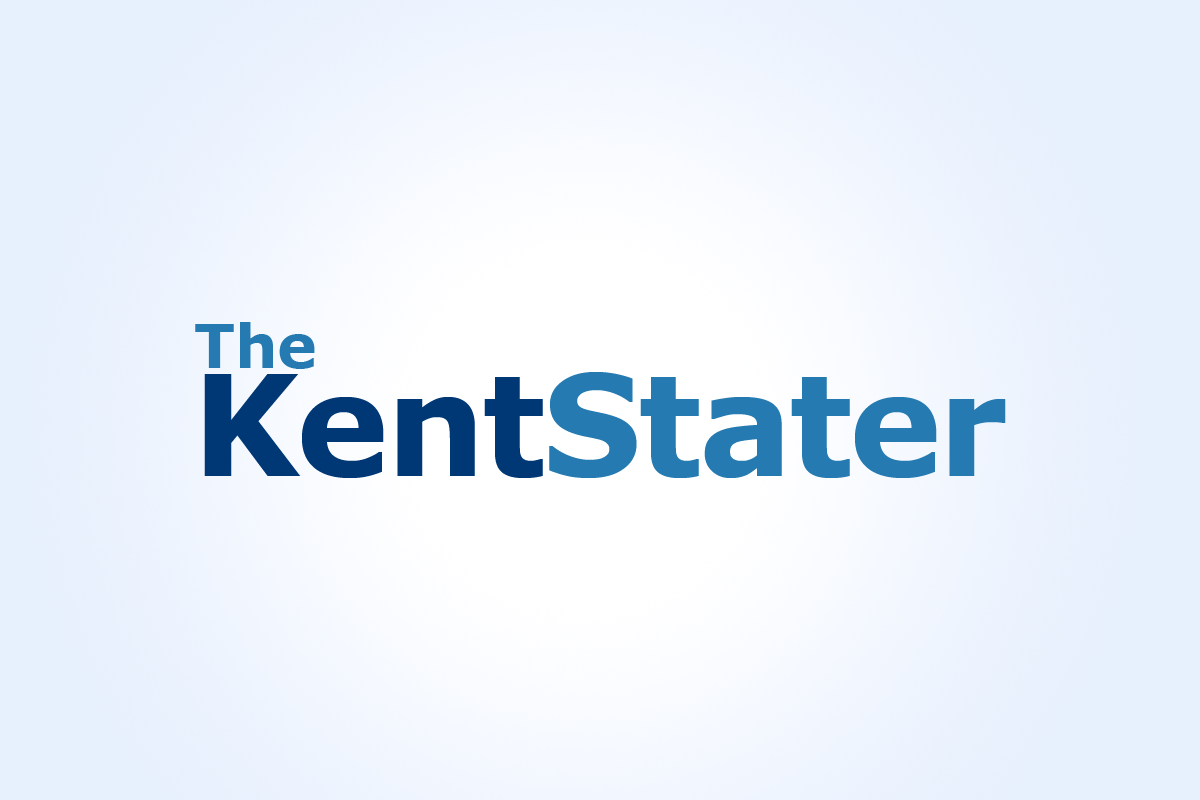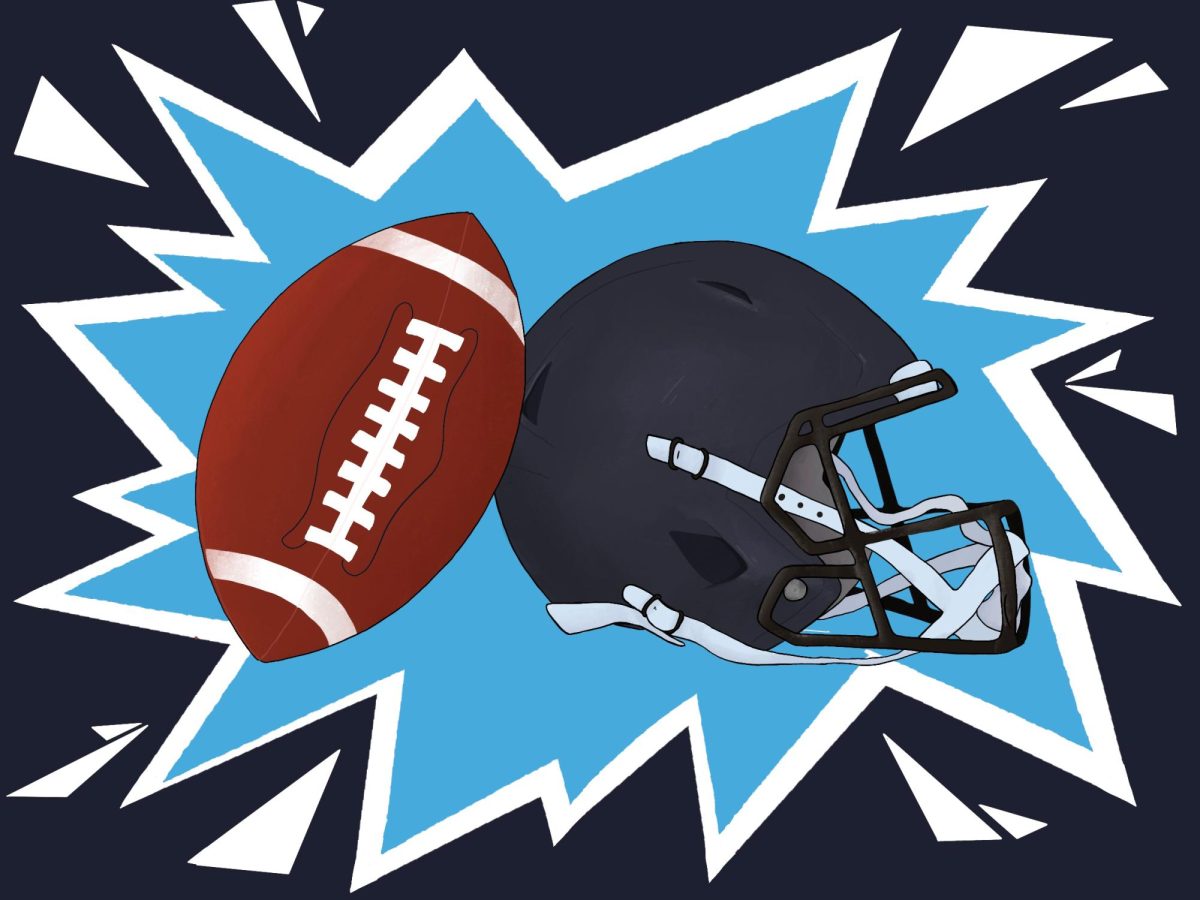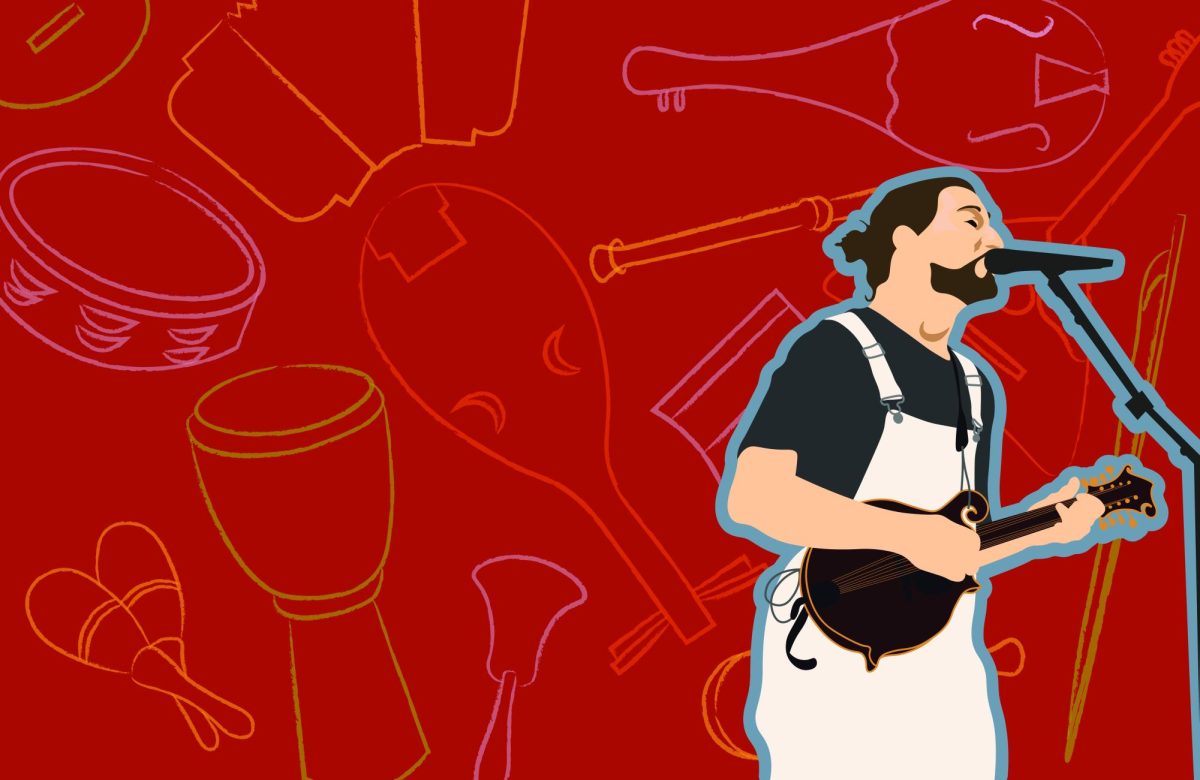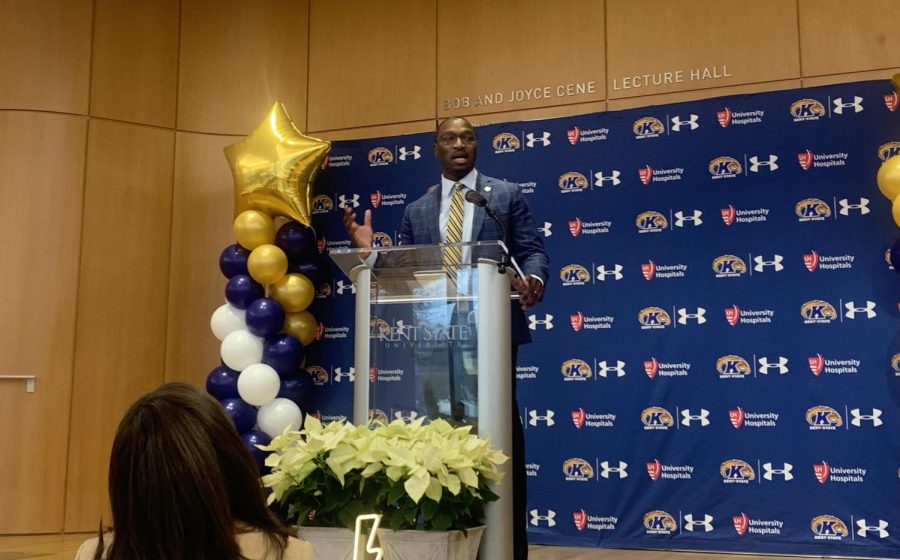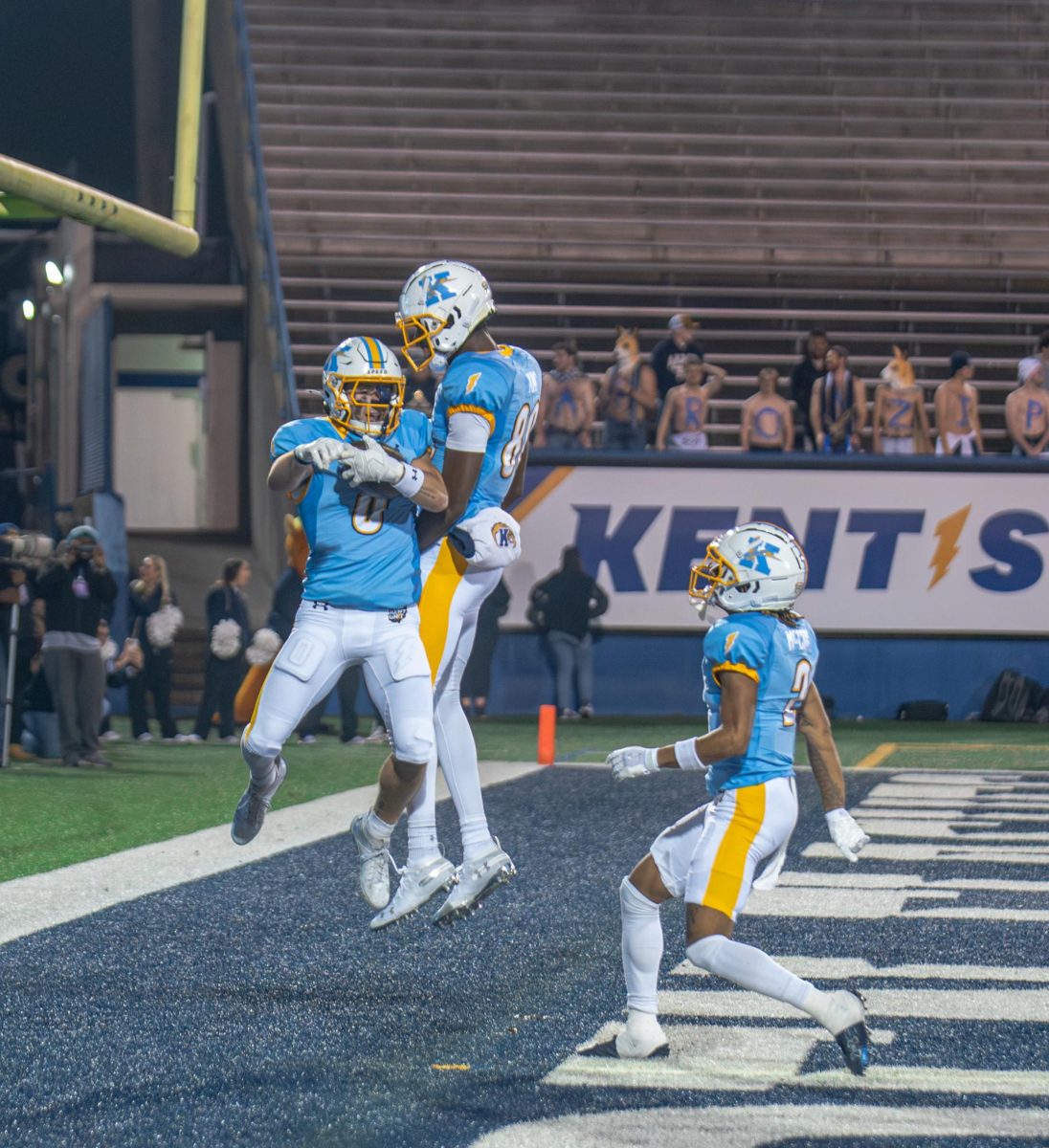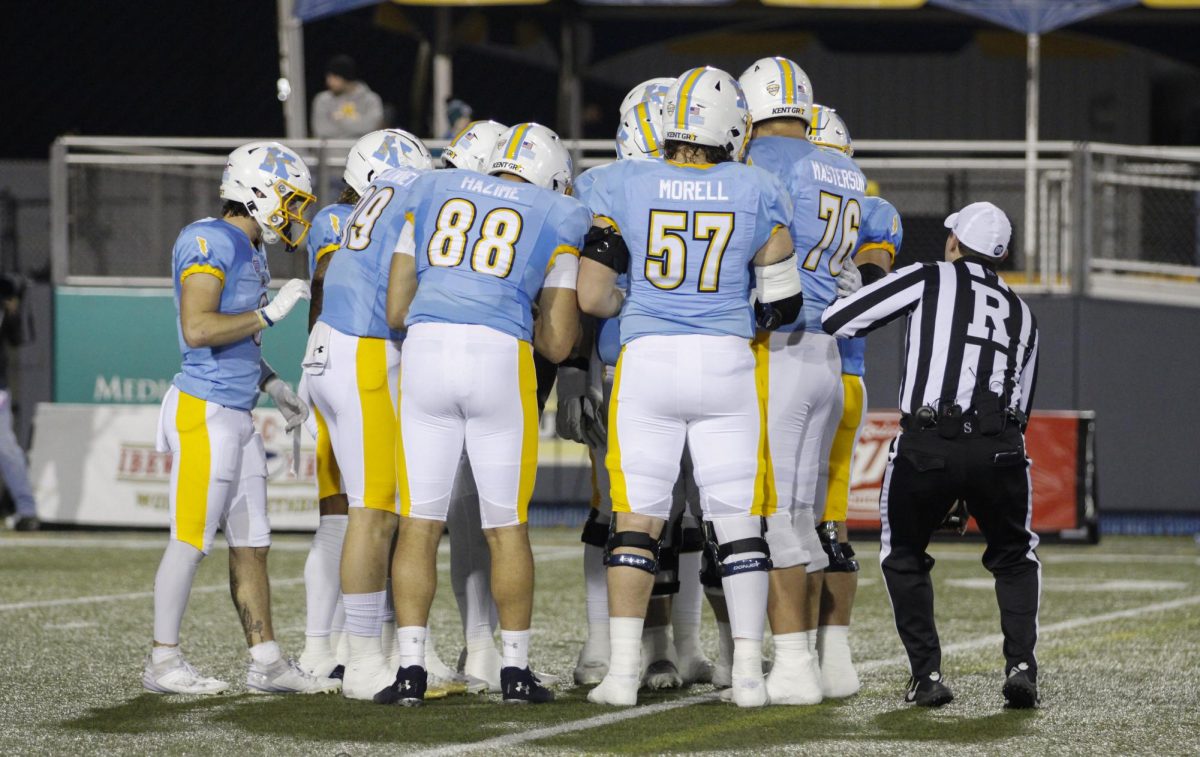Eight selected student-athletes traveled to Pittsburgh Aug. 30-31 to participate in the first experiential learning trip, where they were exposed to new opportunities outside of the playing field.
The trip came to fruition when graduate student Drew Wiemers brought the idea to administrators last spring, said Amy Densevich, the Associate Athletics Director for Academic Services.
“A lot of the back work and initial idea actually came from Drew,” Densevich said. “His previous institution had created a similar experience for their student athletes, so it was something that Drew wanted to bring with him to Kent State.”
After sharing the idea, Wiemers, Densevich and KSU administrators went into planning mode.
Part of the intention of the trip was also to show support for other student-athletes. This played a key role in settling on the location for the trip.
“We decided to start with planning around a football game, just because that made the most sense considering we wanted the trip towards the beginning of the year,” Wiemers said. “We then looked at our guaranteed football games, which were Penn State, Tennessee and Pitt. Pittsburgh was a close hour-and-a-half trip, so we could drive, and there is a lot to do in the city, which is how we landed on Pittsburgh.”
Although it was only a two-day trip, planning and organization happened months in advance.
“Leading up to the trip, there was a lot of organization with the University of Pittsburgh staff, our student-athletes, historical sites that we wanted to visit, hotels and restaurants,” Densevich said. “It needed to be organized and structured because we would only be there for a short time span, Friday morning through Saturday evening.”
Wiemers emphasized the importance of planning and having others help him during the process.
“I never realized how much planning went into a two-day trip like this,” Wiemers said. “I was kind of behind the scenes of doing the itinerary and getting everything set up, but I obviously had help along the way. We also had a meeting planned with President Diacon and Randale Richmond, our athletic director, so it was important to have everything set and ready to go.”
The goal of the trip was to lean into leadership skills and three specific components — education, history and culture, Wiemers said. This provided the basis for activities the athletes would enjoy during the trip.
“We wanted to get our athletes outside of their comfort zones, experiencing new ideas and new things,” Wiemers said. “The educational component accompanied almost everything that we did, with the intent being that the students learn something new and take it back to their team. The historical component was mainly our museum tours at the Roberto Clemente Museum and the Heinz History Center, where we had guided tours that were insightful on sports and Pittsburgh history. Our time in the city itself felt like it hit our cultural component: talking to new people, sightseeing and spending time with each other.”
When the time came to get the student-athletes involved, it was a selective process requiring athletes to apply as well as getting input from coaches.
Fall sports were unable to participate since the teams are in-season, so four men and four women across winter and spring sports represented gymnastics, lacrosse, women’s basketball, softball, men’s track and field, men’s basketball, wrestling and baseball, allowing the athletes to foster connections beyond their own sport.
“For the student-athletes, prior to leaving for the trip, they didn’t actually know each other,” Densevich said. “But once we were leaving the trip, they were sad to go and already started planning other trips with one another, so it was definitely a great experience for them to come together.”
In addition to building connections with each other, the athletes had the opportunity to interact with donors and alumni at the Flash Nation Tailgate prior to the football game.
“The biggest thing at the tailgate was our athletes going up, introducing themselves and forming relationships with the donors and alumni who support us,” Wiemers said. “A great thing that came out of it too was donors and alumni that gave out career advice and mentorship opportunities from that.”
Densevich and Wiemers both agreed the student athletes did a great job of representing their sports and the university at the tailgate and throughout their time in Pittsburgh.
“They did a great job of showing passion and motivation to continue to showcase a positive perception of Kent State University and Kent State Athletics,” Densevich said.
With the successful conclusion of their first experiential learning trip, Wiemers hopes it is something the university will continue to implement.
“This was the first iteration of this type of trip at Kent State, so I’m excited to see the impact going forward of how it started here, and then how we can grow and develop these trips, tailor them towards our student athletes, and just keep building,” he said.
Kailyn Tibolla is a reporter. Contact her at [email protected].


